Everything you need to know about butternut squash, including how to select the perfect squash, how to store it, how to cut it, and more!
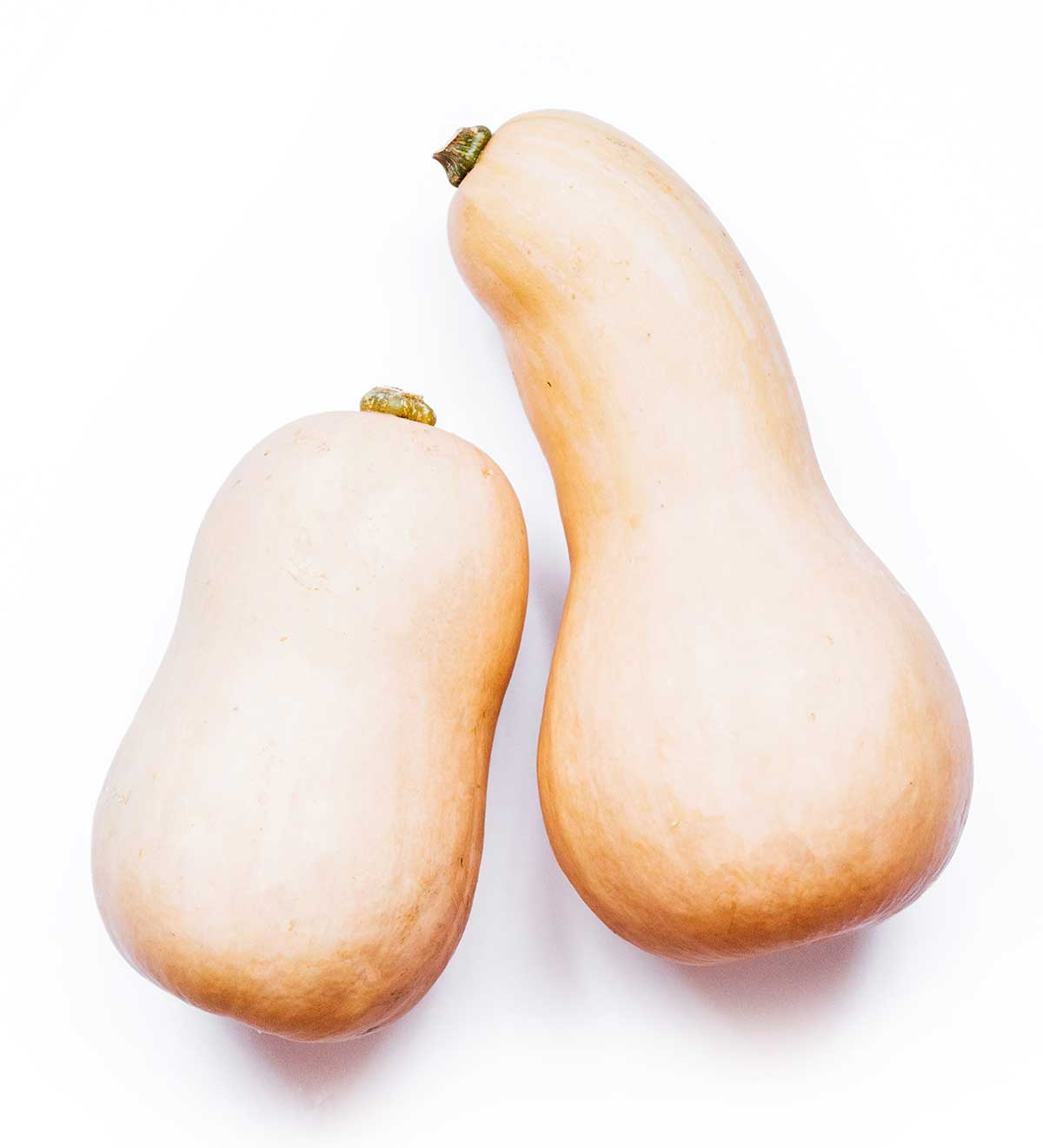
We’re deep into the fall, and that can only mean one thing…squash. All the squash. This week we’ll be exploring the wonderful world of butternut squash, starting with this quick rundown of the butternut basics!
Winter squash vs summer squash
I was initially going to make this a “Squash Week” before I realized there are no less than a gazillion types of squash, and they all deserve their own ingredient spotlight. So let’s start with the very important distinction between the two main camps of squash: winter and summer.
Winter squash: These tend to have a thicker skin and can be stored for quite a while (all through the winter). They include: butternut, pumpkin, acorn, delicata, hubbard, and spaghetti squash (to name a few).
Summer squash: These, on the other hand, have more tender skins and do not store for as long. These include: zucchini, yellow, and pattypan squash.
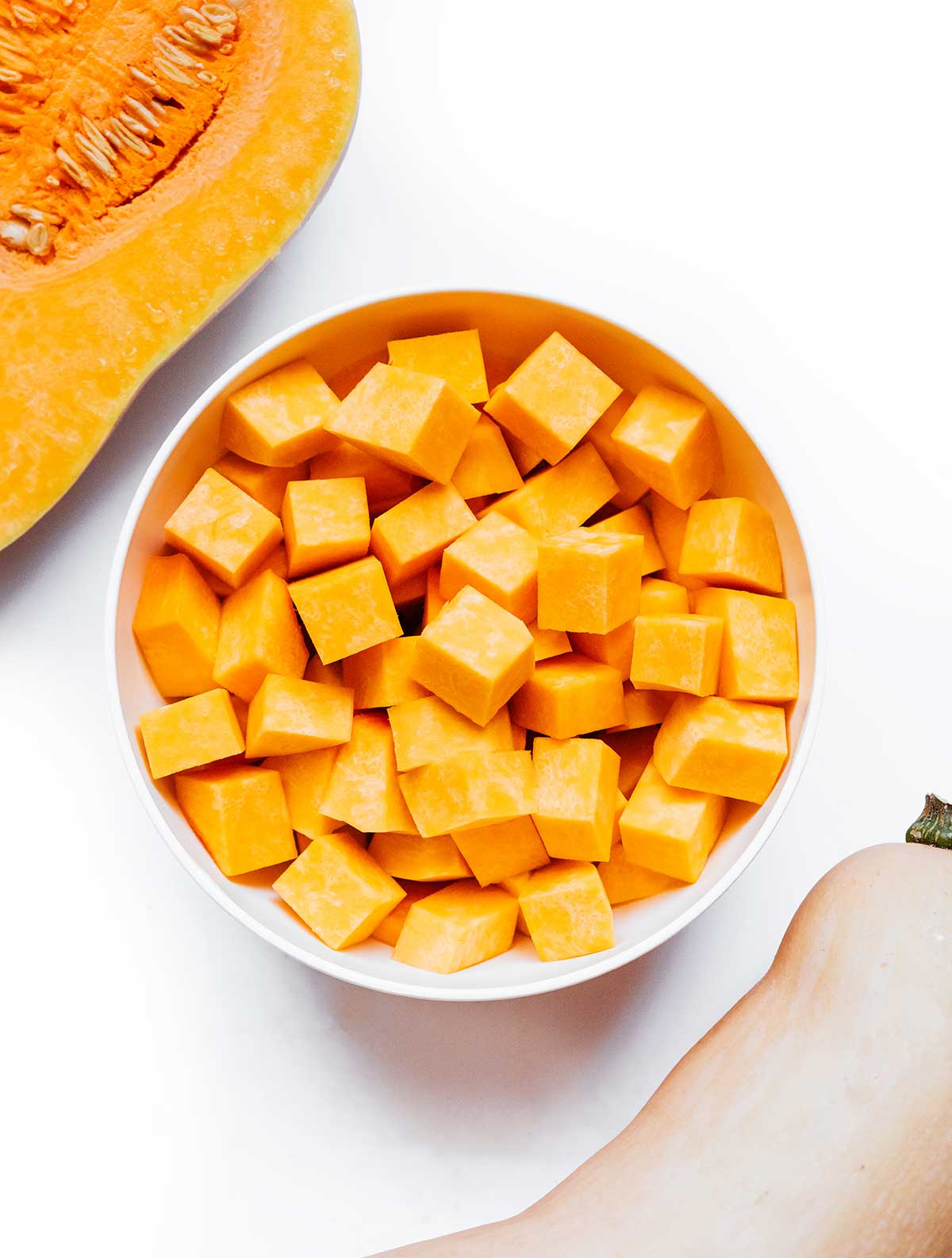
How to pick the perfect butternut squash
These are harvested in the late summer and fall, but they store for a long time so you should be able to find the perfect butternut all year long. Look for one with a hard rind, a sturdy skin, and no deep cuts on the skin (a few nicks and scratches is okay).
How to store butternut squash
Store whole squashes in a cool (optimally about 50 degrees F), dark place for about a month. Squash that’s been cut should be store in an airtight container in the fridge for no more than a week.
How to cut a butternut squash
Cutting a butternut squash may seem intimidating, but it’s actually very easy! Here’s how to safely cut a butternut.
Step 1: Ends
Cut the stem and bottom off of the squash.
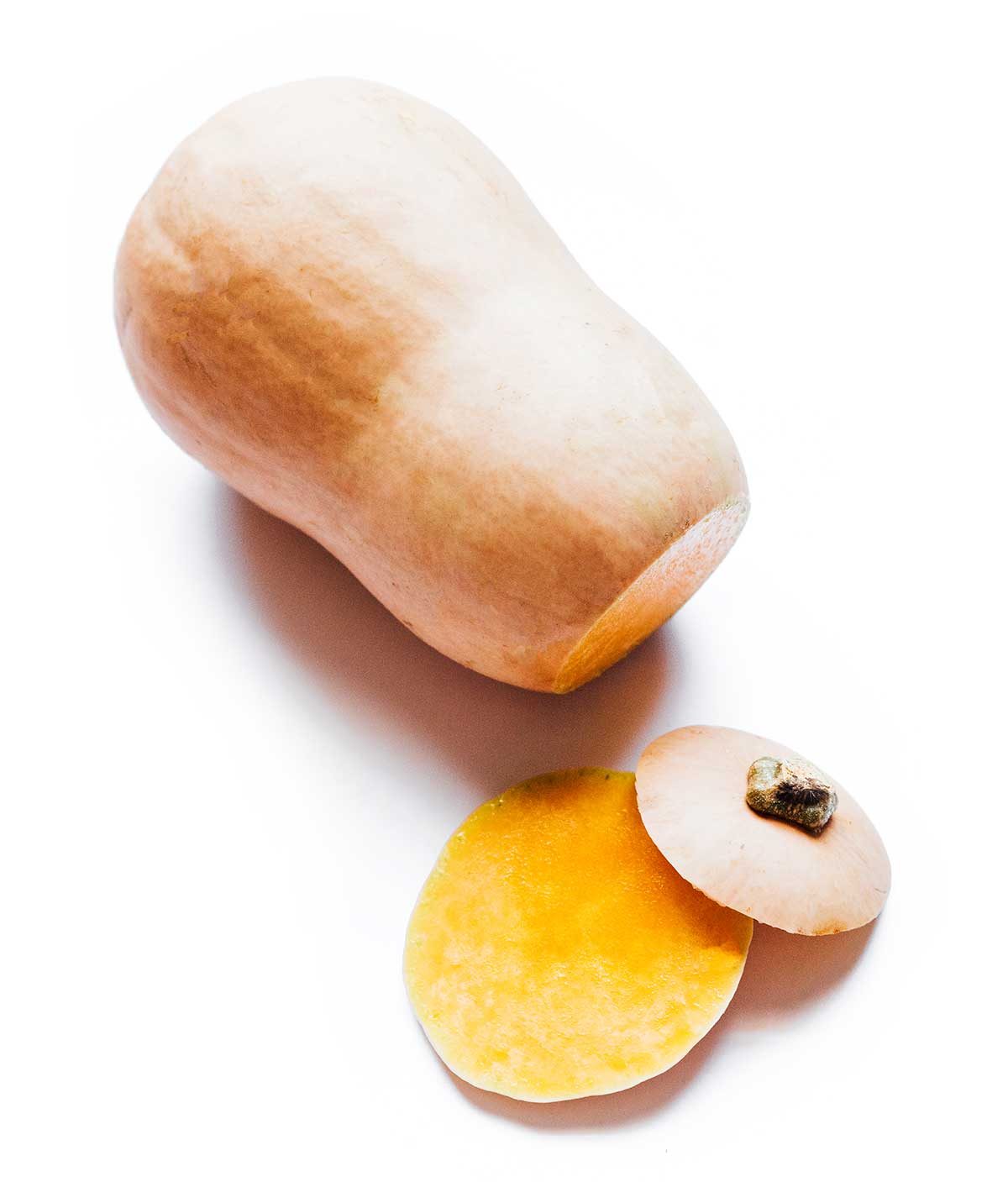
Step 2: Halve
Stand the butternut upright and carefully cut it in half, lengthwise. Be extra careful that your fingers are always above the knife, never under or in the path of cutting!
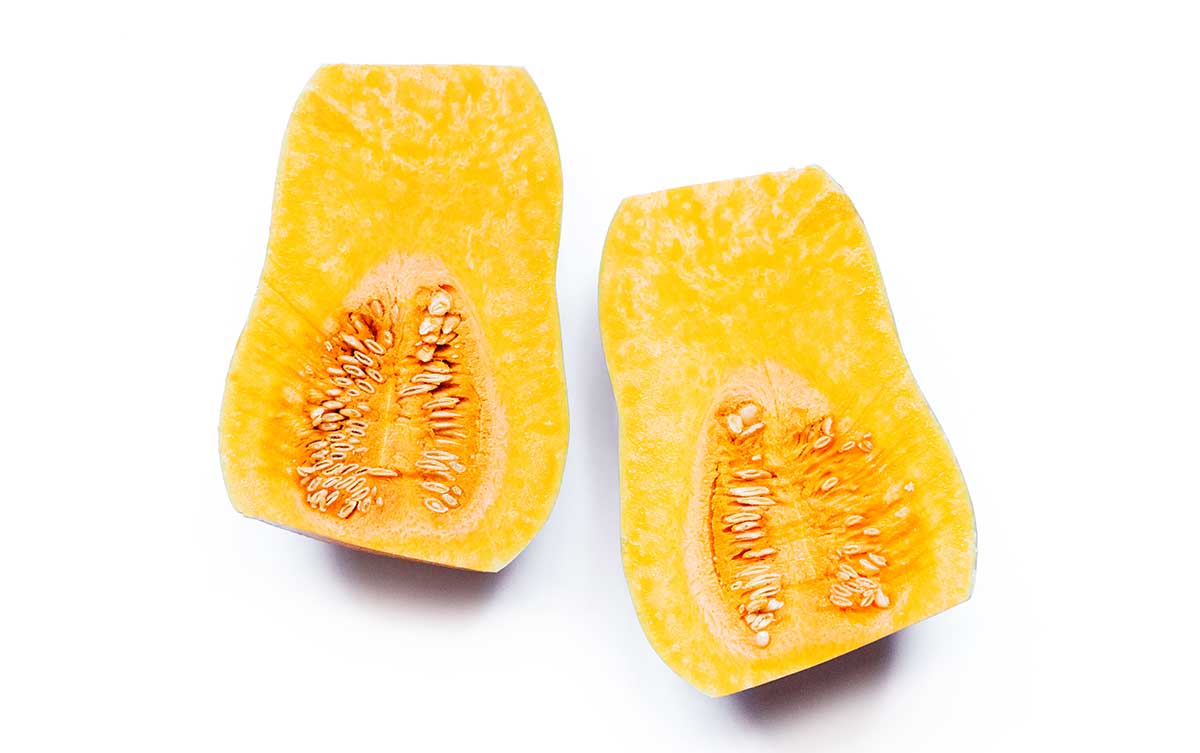
Step 3: Seed and Peel
Use a spoon to scoop the seeds and stringy bits out of the butternut, then peel the thick skin off with a vegetable peeler.
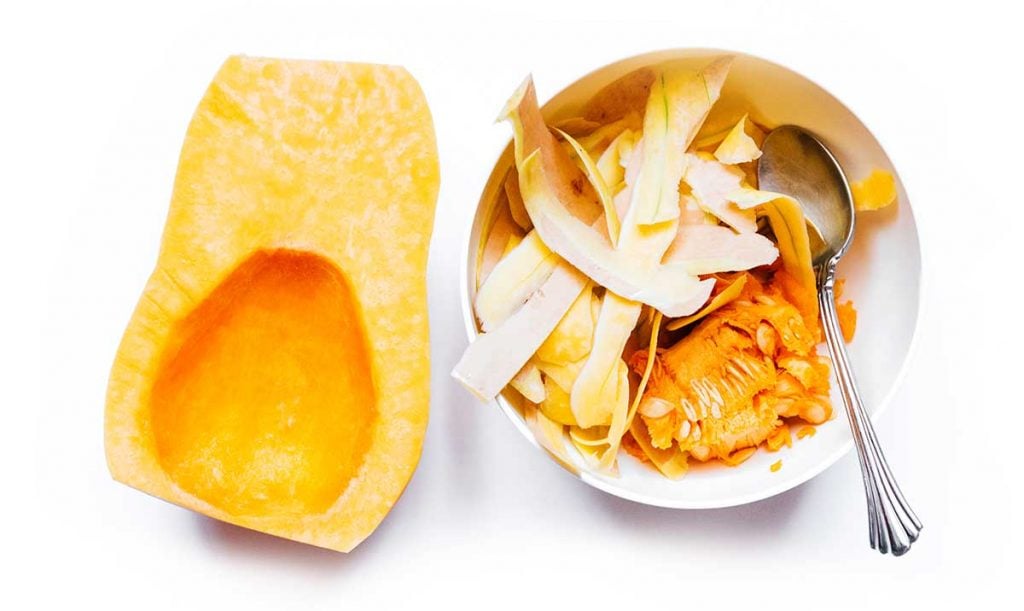
Step 4: Cut
Most recipes will call for cubed butternut squash. To do this, cut it into slices horizontally, then cut each slice into even cubes.
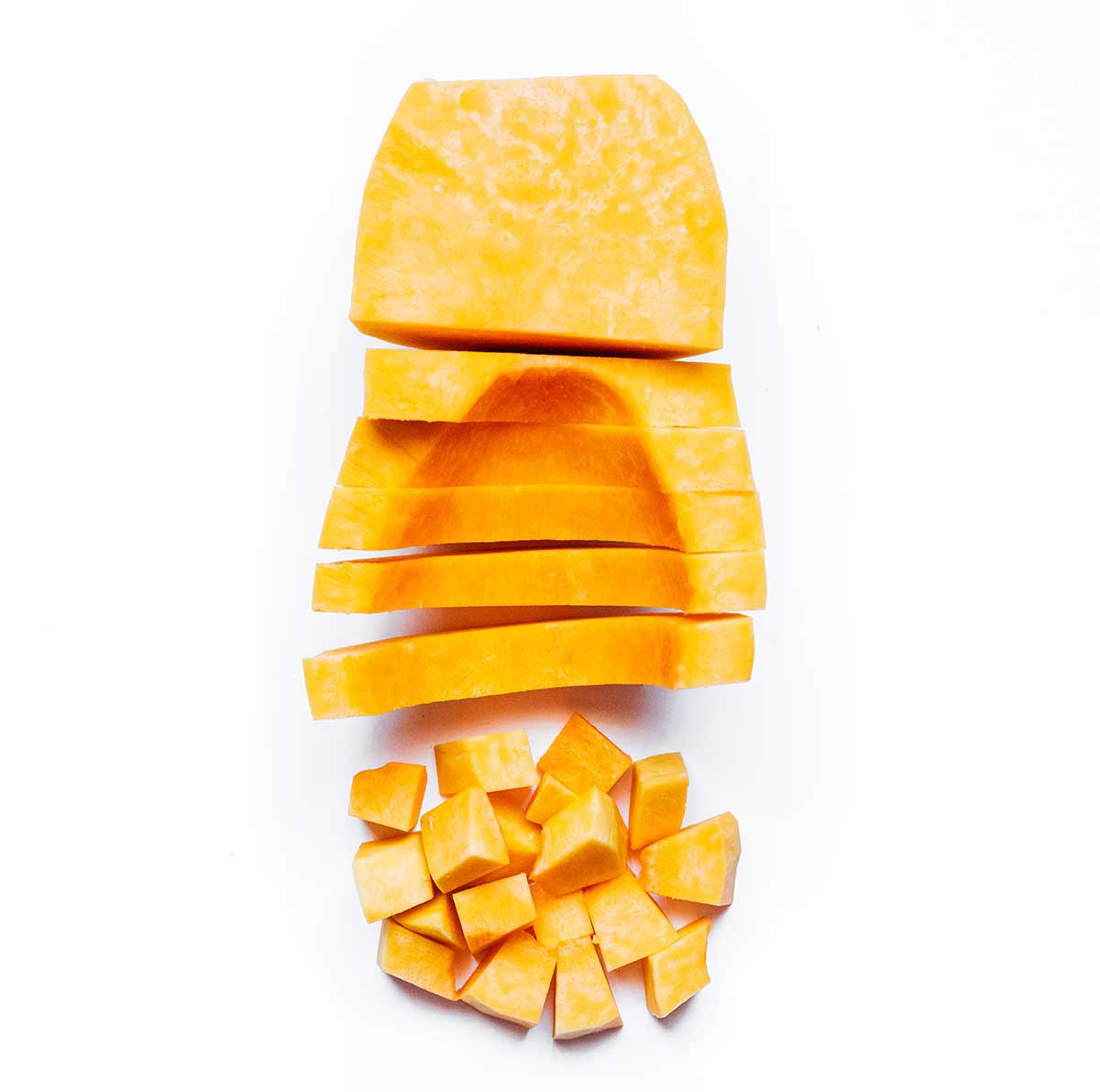
Tada! That’s how you cut a butternut squash. Now the real question…what delicious recipe will you cook it into?
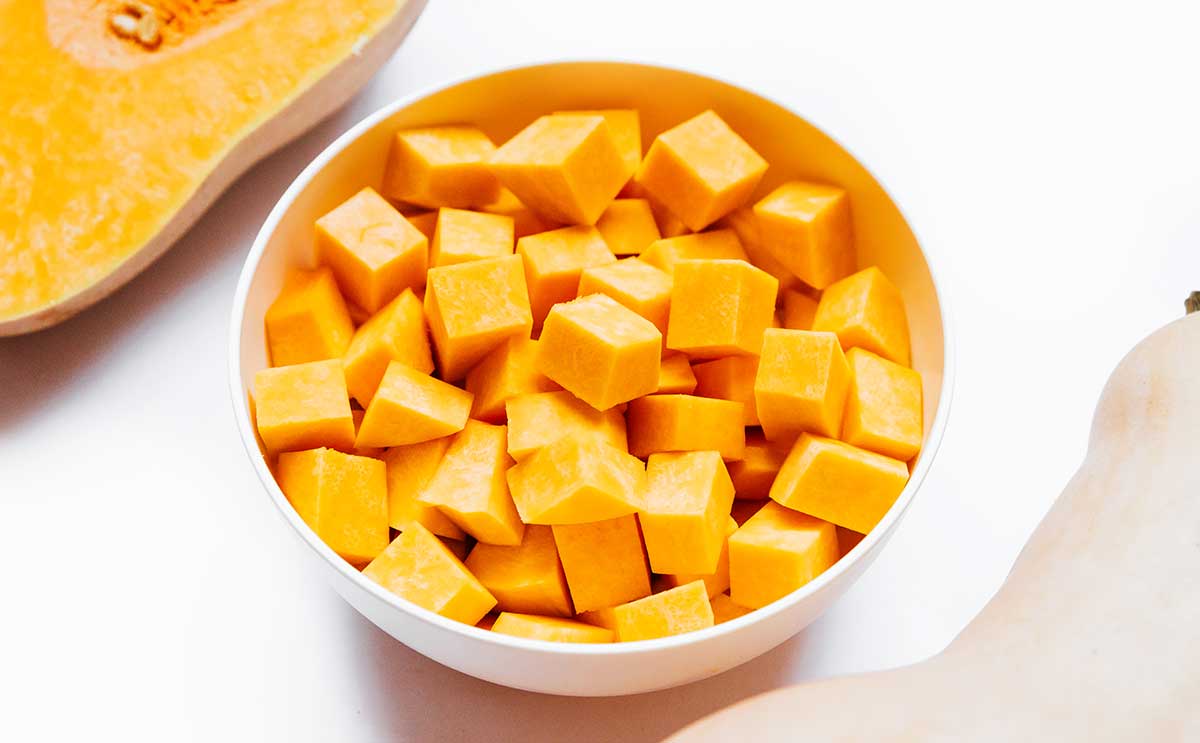
How to cook a butternut squash
In terms of cooking up your squash, there are a few routes you can go. Here are two or my favorites:
Roast with skin on (good for making purees and soups): Cut off the top and bottom of the butternut, then cut in half lengthwise. Scoop out the seeds, brush with oil, and place face down on a baking sheet. Roast for about an hour at 400 degrees F. I like this method because it doesn’t require peeling! Just scoop the roasted flesh out and puree away!
Roast in cubes: Cut the butternut as in the video above, then toss with a splash of oil and whichever herbs you like (garlic + sage, rosemary, or thyme is always a safe bet). Spread onto a baking sheet and roast at 400 degrees F for about 30 minutes. This method is great for throwing butternut into wintery salads.
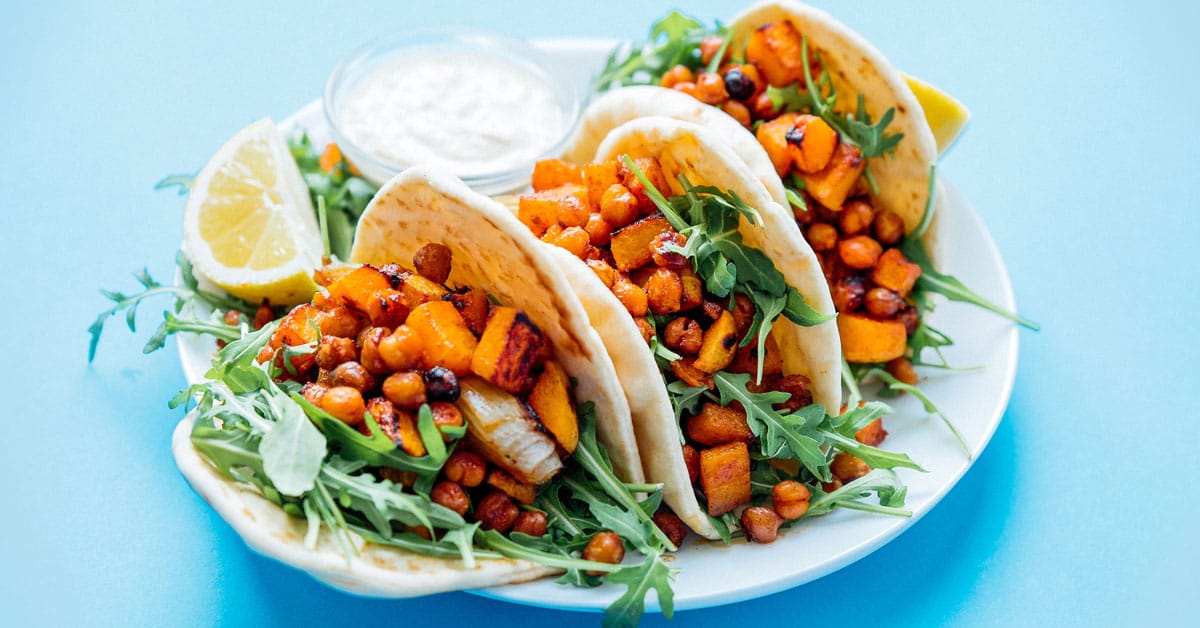
As if we need another reason to love butternut squash, it’s also ultra-adaptable! You can use it as a substitute for pumpkin, sweet potato, or really any starchy orange veggie. Some of our favorite butternut squash recipes are:
- Stuffed Butternut Thanksgiving Main Dish
- Stovetop Butternut Mac and Cheese
- Crockpot Butternut Oatmeal
- Butternut Beet Galette
- Butternut Chickpea Wraps
- Butternut Squash Risotto
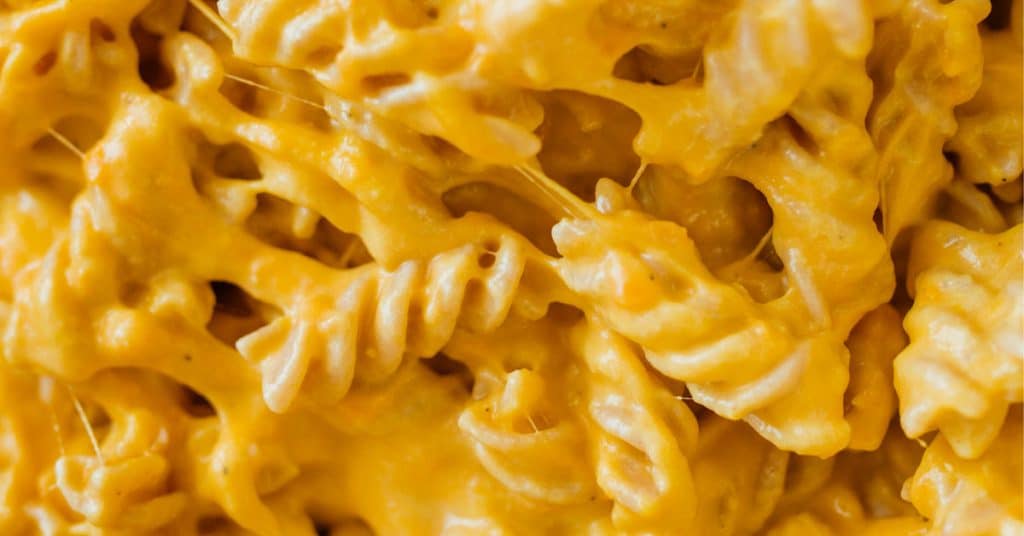
Butternut squash nutrition information
per 1 cup cubes, raw (140 g)
- Calories: 63
- Carbohydrates: 16 g
- Fiber: 3 g, 11% of Daily Value (DV)
- Protein: 1 g
- Fat: 0 g
- 298% DV of Vitamin A: Provides the provitamin version of this fat-soluble vitamin, meaning it comes from a plant source and your body converts the plant pigment into active Vitamin A. It is essential in many components of healthy vision, as well as immunity and cell growth/differentiation.
- 49% DV of Vitamin C: A water-soluble vitamin that acts as an antioxidant to fight against potentially damaging free radicals (molecules with unshared electrons that float around wreaking havoc) and an important cofactor in collagen synthesis.
- 11% DV of Vitamin B6 (Pyridoxine): A water-soluble vitamin that works behind the scenes as a coenzyme in many important reactions within your body, including protein metabolism and red blood cell formation, among countless other functions.
- 10% DV of Vitamin E (a.k.a Tocopherols and Tocotrienols): A fat-soluble antioxidant that fights against potentially damaging free radicals from reacting with oxygen when fat is metabolized.
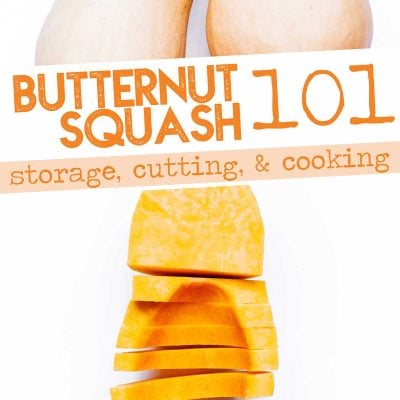
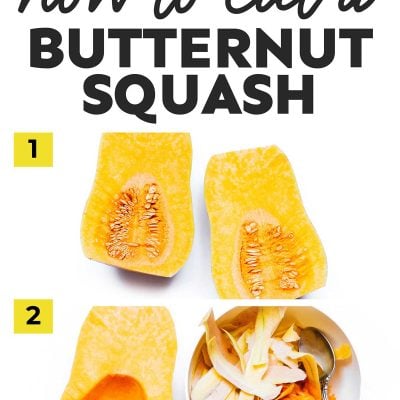
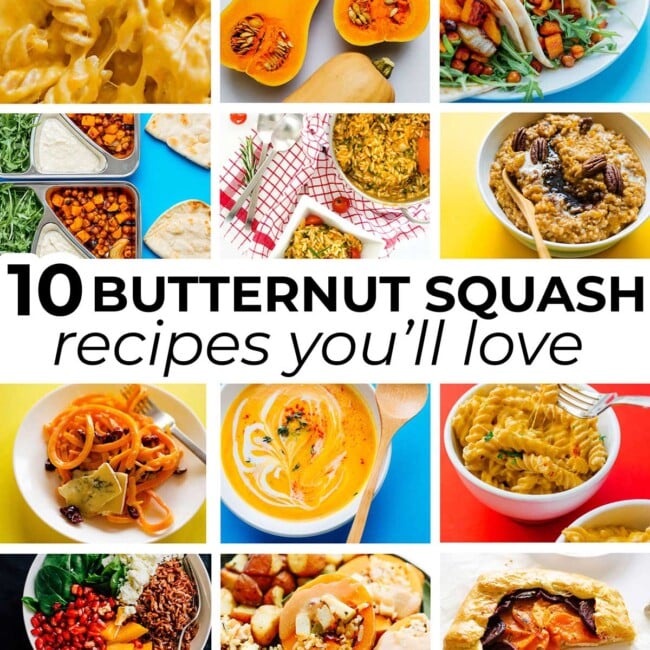
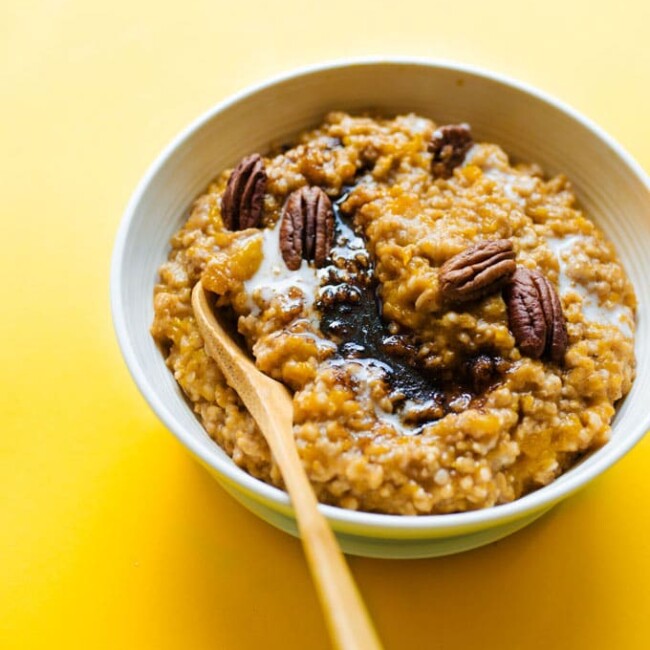
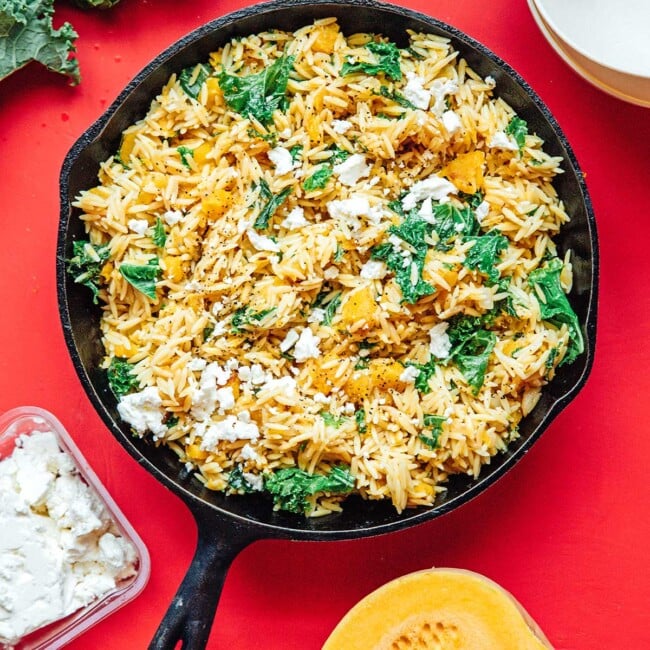
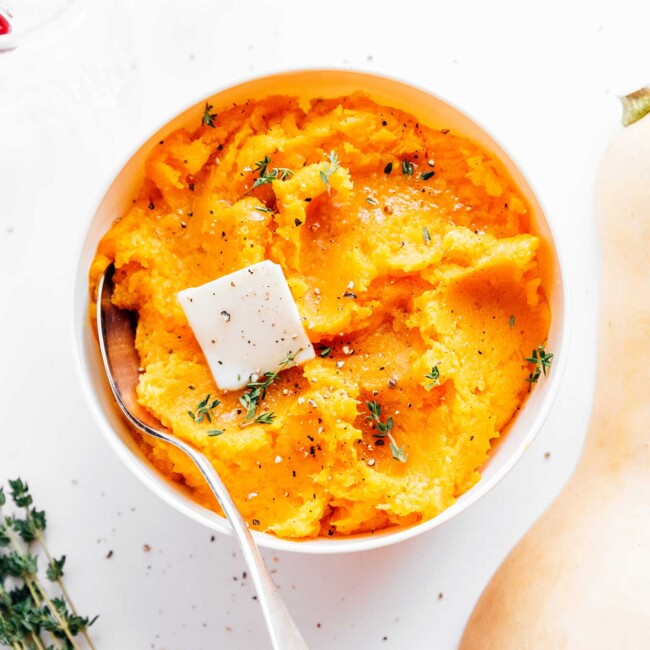
GW says
How to use in cooking? One word. . . . . Soups. Or well two words, chilli.
Mick jagger says
so true (im mick jagger by theway)
Morse says
Is butternut high potassium. If so, in a one cup serving how much potassium is there. I am on a very low potassium diet but I love butternut squash.
Sarah says
1 cup has about 500 mg, which is 14% of your daily needs.